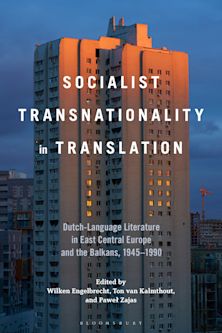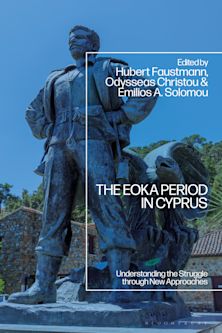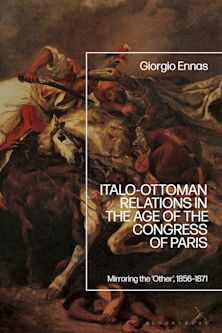- Home
- ACADEMIC
- History
- European History
- Hegel and German Public Law
Payment for this pre-order will be taken when the item becomes available
You must sign in to add this item to your wishlist. Please sign in or create an account
Description
Nathaniel Boyd's pathbreaking book argues that Hegel's political thought was shaped by German public law. This tradition of legal discourse, especially through its imperial tradition, was crucial to European modernity, influencing foundational philosophical concepts such as sovereignty, the state and the diverse legal systems that emerged from them. Hegel and German Public Law examines the impact of Johann Jacob Moser, Johann Stephan Pütter and Johann Christian von Majer on Hegel's intellectual development. It reveals how the collapse of the Holy Roman Empire informed his early speculative system and constitutional theory. In doing so, Boyd extends our understanding of Hegel's relation to European legal and political thought while offering an original interpretive framework for Hegel's absolute idealism and unfolding institutional theory of the state.
Table of Contents
1. Imperial Public Law in Statu Cadentis Imperii: Johann Jacob Moser
2. The Empire as the Impersonal Nexus of the Composite State: Johann Stephan Pütter
3. The Twilight of German Imperial Public Law: Johann Christian von Majer
4. The Empire of Ethical Life: Georg Wilhelm Friedrich Hegel
Conclusion
Bibliography
Index
Product details

| Published | Feb 19 2026 |
|---|---|
| Format | Ebook (PDF) |
| Edition | 1st |
| Extent | 304 |
| ISBN | 9781350584198 |
| Imprint | Bloomsbury Academic |
| Series | Europe’s Legacy in the Modern World |
| Publisher | Bloomsbury Publishing |
About the contributors
Reviews
-
Much of Hegel's theory of the modern state grew out of his reaction to the literature of German public law. These sources are largely unknown to us today. It is no small service of Boyd's work to have resurrected them and to have shown their relevance for Hegel's political thought. Hegel and German Public Law marks a milestone in the study of Hegel.
Frederick Beiser, Professor Emeritus of Philosophy, Syracuse University, USA
-
In the history of Hegel's legal and political thought, his connection to the Holy Roman Empire has rarely been explored. This book expertly reconstructs this relationship and thus contributes significantly to our understanding not only of Hegel's Staatsphilosophie, but also of German public law in the era of the Empire's demise.
Barbara Stolberg-Rillinger, Rector of the Wissenschaftskolleg zu Berlin, Institute for Advanced Study, Berlin
-
This book offers a completely new contextualization of Hegel's early constitutional theory, unprecedented in its detailed exposition and command of the relevant sources. By meticulously examining the legal thought of Moser, Pütter and Majer, Boyd uncovers the foundations of Hegel's conception of regime forms, leading to his criticism of Roman law and the machine state along with his subtle development of an organic conception of ethical life.
Richard Bourke, Professor of the History of Political Thought, University of Cambridge, UK
-
To any scholar interested in the genesis of Hegel's constitutional thought, Boyd's study of the influences exercised by the tradition of German public law will definitively appear as a landmark. More broadly, it leads us to reconsider some of the major legal and political concepts that have framed modernity.
Louis Carré, Research Associate of the FNRS, University of Namur, Belgium

ONLINE RESOURCES
Bloomsbury Collections
This book is available on Bloomsbury Collections where your library has access.




































